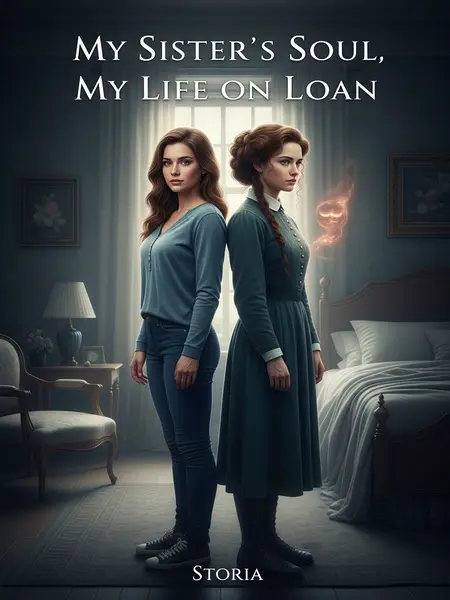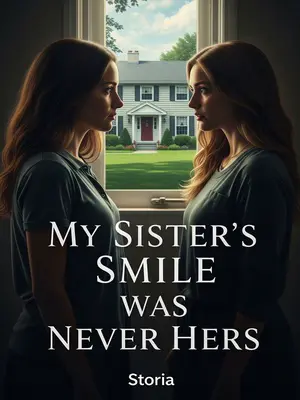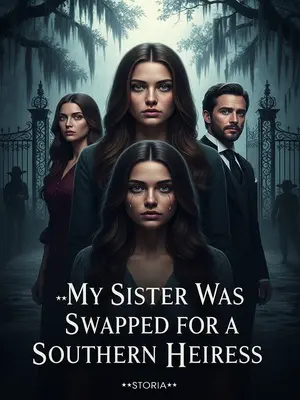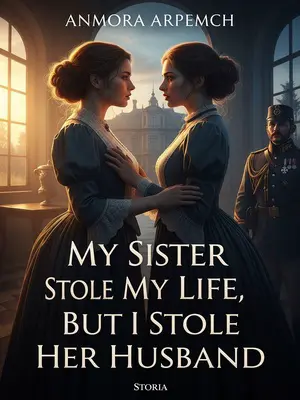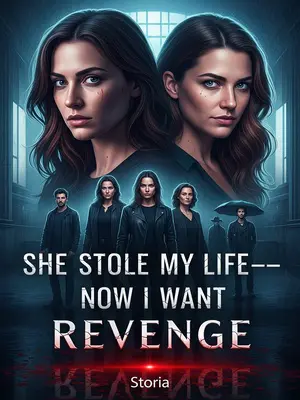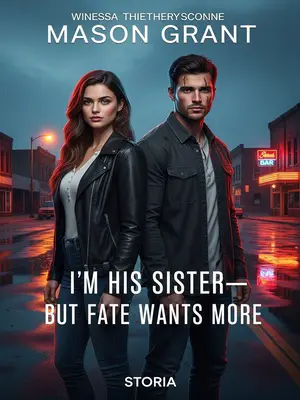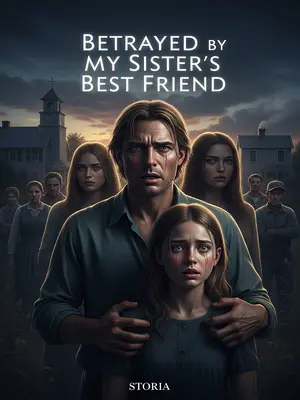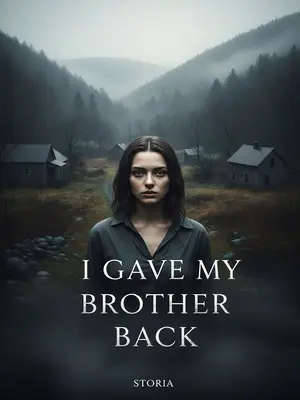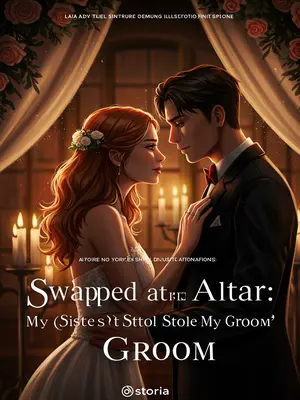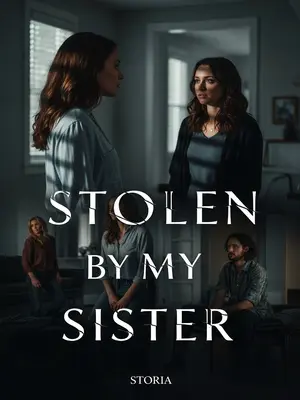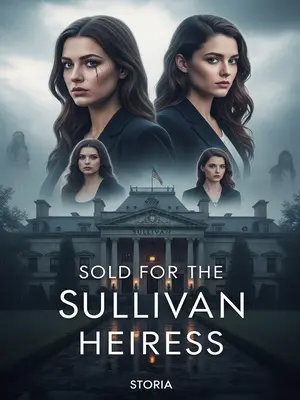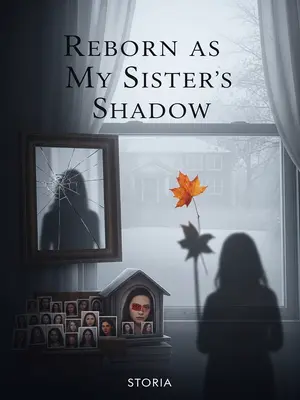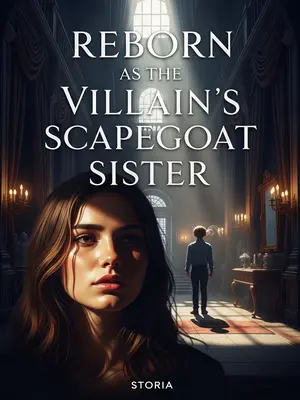Chapter 2: Lessons, Love, and a Crash
"You pray to your God, I’ll pray to mine. That’s called hedging your bets," she said, all businesslike, scrolling through Yelp reviews for places of worship like she was picking out a new brunch spot. Only my mom.
Classic Mom.
Dad just shook his head, a half-smile on his lips, as if to say, "Only your mother." I grinned, grateful for the little bit of normal.
Meanwhile, I was at my laptop searching for time travel novels for inspiration.
I read fan forums, checked out library books, even started a Google Doc of possible solutions. If there was a way to bring Harper back, I was determined to find it—even if it was buried in the pages of a fantasy novel. I even messaged a few Reddit threads. Desperate times.
Lila quietly came out and knelt before my parents, hands folded.
She moved with a strange kind of grace, her posture perfect, as if she’d spent her whole life practicing how to kneel just so—like she was about to pray at a Southern Baptist altar or star in a classic church scene from a movie. The sight of her, so earnest and out of place, made my heart ache. She didn’t belong here, not really.
"Mr. Brooks, Mrs. Brooks, I didn’t mean to come here, but I really am living in your daughter’s body. I’m so sorry."
Her voice trembled, the apology sincere. She looked at them as if she was waiting for judgment, for someone to tell her she could finally go home. My mom’s eyes filled with tears.
She bowed low, posture humble.
Mom rushed over, lifting her up before her knees could even touch the floor, her hands gentle but firm. "No, sweetheart. You don’t have to kneel to us."
Mom stood up and helped her up. "It’s not your fault, sweetheart."
She brushed Lila’s hair back from her face, smoothing it with a tenderness that made me blink back tears. "You’re family now, no matter what." Her voice wobbled, but she meant it.
Even though we wanted Harper back, we never blamed Lila.
It wasn’t her fault, any more than it was ours. She was as lost as we were, and we all knew it. We tried to make her feel safe, even as we missed our real sister.
She was a victim too. None of this was her fault. I tried to remember that, even on the days when I just wanted to scream.
Sometimes, late at night, I’d hear her crying softly in her room. I wanted to go in, to comfort her, but I never knew what to say. We were all just trying to survive. I wished I was better at this.
If she hadn’t ended up here, maybe she’d have had a peaceful life in her own world.
Maybe she’d have grown up in a big old house, married her cousin, lived the life she’d always been told was hers. Maybe she’d have been happy. I hoped so. I hoped she found something better.
She looked up, choosing her words carefully: "Thank you for taking care of me these days. Since I can’t go back right away, I’m willing to study as your daughter, so when she returns, she won’t fall behind."
There was a quiet determination in her voice, a kind of courage I hadn’t expected. She was scared, but she was willing to try—for us, for Harper, for herself. I was moved, more than I wanted to admit.
I was stunned.
For a second, I just stared at her. She was trying so hard to do right by a family that wasn’t even hers. That took guts.
Right then, I understood.
She wasn’t rejecting our world—she was just terrified of it. But she was willing to face that fear, for us. That was more than I could have asked for. I felt a little braver just watching her.
She didn’t hate modern life—she was just scared of it.
All those gadgets, the noise, the rush of city life—it was overwhelming. But she was willing to step into the unknown, one shaky step at a time. I couldn’t help but admire her.
But now, she was willing to try for us.
I reached out, squeezed her hand, felt her fingers tremble in mine. "You don’t have to do this alone. We’re here." I meant it.
She really was a kind soul.
I reached out to her: "Welcome to the family." I smiled, hoping she could see how much I meant it.
She smiled, small and hopeful, and for the first time, I saw a glimmer of something like belonging in her eyes. I hoped it would last.
My whole freshman summer was spent tutoring Lila.
The days blurred together: flashcards, practice problems, YouTube videos about basic algebra. I set up a study schedule, made color-coded notes, and even stuck motivational quotes on her mirror. It was exhausting, but it gave me a purpose. Sometimes I felt like a character in a coming-of-age movie montage.
From cell phones and computers to reading, listening, vocab, then on to algebra and geometry.
I started with the basics—how to turn on the computer, how to use a search engine. We watched Khan Academy together, pausing every few minutes so I could explain things she’d never seen before. She was a quick learner, even if she didn’t believe it. I cheered every little win.
Sometimes, I took her to the city museum to look at artifacts.
We’d wander the echoing halls, her eyes wide at the old photographs and glass cases. Sometimes she’d point at something and ask, "Is this from my time?" I never really knew how to answer. Sometimes I’d just say, "Sort of."
You won’t find her world in any history class. I had no idea what it was really like.
I tried to piece it together from her stories, but it always sounded half-real, half-fairy tale. No Wikipedia entry could capture the world she described. It made me wish I’d paid more attention in AP U.S. History.
But from her stories, it was clearly a time when women had no freedom.
She talked about locked doors, about rules that made no sense, about never being allowed outside alone. It made my skin crawl, thinking about how small her world had been. I wanted to shake her father.
She was locked up in her room since she was little, embroidering and copying Bible verses, only allowed to read books for girls.
She’d describe the endless hours stitching by candlelight, reciting verses until her fingers cramped. The only books she read were about how to be a good wife, a good daughter, a good woman. Never about being herself. I couldn’t imagine it.
Her nanny told her from childhood she’d marry her cousin someday.
It was just a fact of life, as ordinary as breakfast. She never questioned it, because nobody ever told her she could. It was just the way things were.
Her whole sixteen years seemed like training to become her cousin’s bride.
Everything was about that one thing. Becoming his bride. The weight of it was suffocating. I wanted to tell her she could be anything.
When she talked about her cousin, her cheeks turned pink, all shy and girly.
She’d twist her hands in her lap, eyes downcast, a tiny smile tugging at her lips. It was the kind of innocent crush you’d see in an old Doris Day movie, untouched by cynicism.
"Does your cousin treat you well?" I asked.
I tried to keep my voice light, but I was genuinely curious. Did she even know what love was supposed to feel like? I braced myself for her answer.
She nodded: "He’s nice to everyone."
She said it like it was the highest praise, as if being nice to everyone made him special. I bit back a comment. Really? That’s the bar?
I sipped my yogurt, thinking, so there really are Clark Gable types in real life. It was hard not to roll my eyes, but I kept quiet. I wanted to hear her out, to understand the world she came from.
She went on: "Every time he visits, he brings us cookies, candied nuts, or little trinkets like ribbons."
She described the gifts with a kind of reverence, as if a handful of sweets could make up for everything else. I wondered if she’d ever been given anything just because she wanted it, not because it was expected. I wanted to buy her a real present.
Wait, this sounded off. Was he just nice to everyone?
I frowned, swirling my yogurt cup. Something about the way she described him didn’t sit right with me. I felt a little queasy.
She continued: "He’s also kind to the staff. Before we were to marry, my aunt arranged two maidservants for him, and he takes care of them too."
My spoon froze halfway to my mouth. Two maidservants? I tried to keep my face neutral, but inside I was screaming. I wanted to say, "That’s not normal."
I nearly spit out my yogurt. Girl, are you hearing yourself?
I set the cup down, my appetite gone. Was this really what counted as a good man back then? I bit my tongue.
Is this what counts as a good man back then?
She nodded, oblivious to my discomfort. "He’s very generous."
And that’s not all—"He met a singer at the theater, bought her freedom, and keeps her around too. My cousin’s got a big heart."
She said it with pride, as if it was proof of his kindness. I couldn’t help but shudder. The rules of her world made my stomach turn. I bit back a sarcastic comment.
I was frozen.
I couldn’t even find words. It was like hearing someone describe a fairy tale where the princess never gets to leave the tower, and everyone acts like that’s normal. I wanted to scream.
Lila came from a rich family where her dad had several wives.
She talked about her family dinners, the way her father’s wives all sat at separate tables, the way the children were ranked and compared. It sounded more like a soap opera than real life. Like something out of Dynasty.
Growing up in that, she never thought men having lots of women was weird.
It was just the way things were. She never questioned it, never thought to ask for more. I wanted to tell her about Netflix rom-coms and real love.
Her cousin was the son of a state official, started working in government young, with his future laid out like a five-year plan in a boardroom.
He was the golden boy, the one everyone expected great things from. The kind of guy who always got his way. A real Mr. Future President type.
Her family needed protection, his family needed business money.
It was a match made on paper, a merger of power and wealth. Love had nothing to do with it. It was all about the deal.
A marriage between an official and a merchant was seen as perfect by everyone else.
The whole city gossiped about it, she said. It was the kind of alliance people envied, not questioned. I rolled my eyes.
But her own thoughts? Didn’t matter.
Nobody asked her what she wanted. It was just assumed she’d go along with it, like everyone else before her. That made me so mad.
She’d been locked away her whole life, the only man she ever saw was her cousin, and her nanny drilled it into her since she was little.
She never had a chance to dream of anything else. Her world was so small, so carefully controlled, it was a wonder she hadn’t suffocated. I wanted to show her the world.
Was this love she was raised to feel really love? I wasn’t sure. Not really. I wanted to shake her, but I just nodded.
When I told her that in our world, there’s monogamy, gender equality, women can take the SATs, become doctors, run businesses, she stared at me, wide-eyed, totally blown away.
She clutched her notebook, eyes round as saucers. "Women can do all that?" she whispered. I nodded, and she just shook her head, as if trying to wake from a dream. It was like I’d told her the moon was made of cheese.
One morning, I took her to see "Romeo and Juliet" at the theater.
She dressed up, nervous but excited, clutching the playbill like it was a treasure. We found our seats, the lights dimmed, and she leaned forward, eyes glued to the stage. She looked like she’d never seen anything so magical.
To see Juliet from centuries ago, fighting tradition to go to school, falling for a classmate.
She gasped at Juliet’s boldness, her willingness to defy her family. I watched her face, saw hope and heartbreak flicker in her eyes. She squeezed my hand.
To see young people breaking out for freedom and love, even when their families tried to crush them.
She squeezed my hand during the balcony scene, tears shining. I could tell she was rooting for them, even though she knew how it ended. I felt her hope.
On stage, the actress’s dress swirled, her voice ringing out.
The music soared, the actors wept, and Lila sat there, spellbound, as if she’d never seen anything so beautiful. I bought her popcorn, but she didn’t touch it.
In the audience, Lila watched, spellbound.
She barely blinked, her hands clasped tight in her lap. When the curtain fell, she sat in stunned silence for a long moment. I handed her tissues.
When the play ended, she was in tears: "This world is so unfair. Those poor lovers."
She wiped her eyes, her voice thick with emotion. "They just wanted to be together. Why is that so hard?" I didn’t have an answer. Sometimes, it just is.
After that, I took her to see Titanic.
We stood in line for popcorn, and I tried to explain what a blockbuster was. She giggled at the previews, but once the movie started, she was hooked. She ate half the popcorn by herself.
